
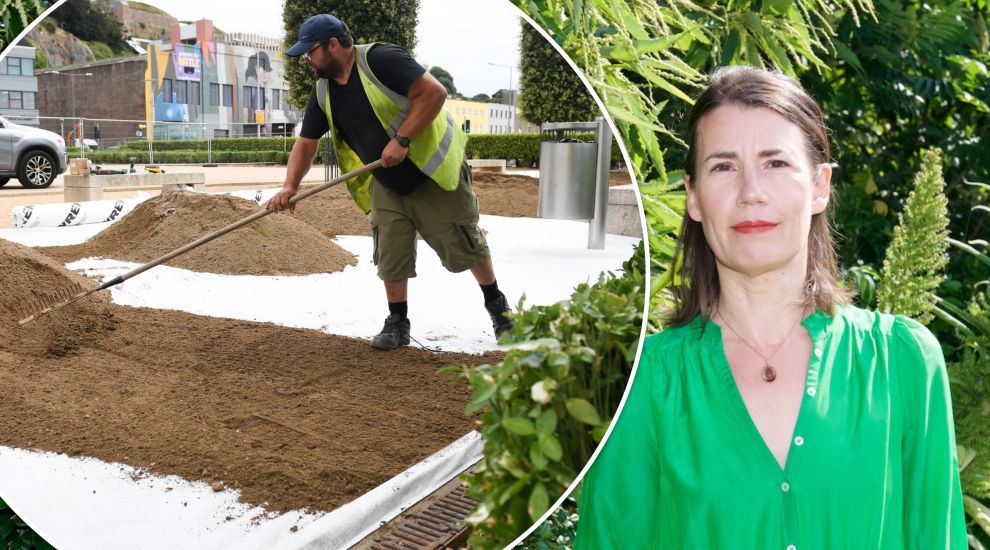

A new "mini park" will be popping up in town this weekend as part of a much larger project to get islanders thinking about how we can make the most of public places, as Express found out.
Sasha Gibb is the former Director of CCA Galleries and the founder of the ‘Public Voice: Common Ground’ project, which is aiming to get at least 10% of the population to have their say on the look and feel of Jersey’s outdoor areas.
While the pilot will see feedback gathered via an online survey, it also aims to demonstrate what is possible via a number of 'pop-up' initiatives – the first of which is starting at the Weighbridge on Saturday and will run until early September.
The initiative will see a temporary grassy park installed at the Pétanque Pitch, with the help of Antony Gibb Ltd, Romerils, Acorn, Grow with Mont à l’Abbé School.
On Friday 28 July (15:00-19:00) and Saturday 29 July (10:30-13:00), a drop-in clay workshop will be held there with Earthworks Founder and London-based artist Jo Pearl. The first 100 participants will get a complimentary ice cream. There will also be music courtesy of Brass Souls on the Friday from 17:45.
The main aim of the initiatives, which are being supported by the Economy Department and Jersey Development Company, is to provide a playful way to involve the public in conversations about how we can improve our public spaces, as Sasha Gibb told Connect Magazine this month...
‘Public Voice: Common Ground’ developed out of some research last year on how to improve St. Helier’s public spaces for its people. It was initially sponsored and supported by Government. It's now got backing from the Future Spaces Ministerial Group, and in particular, Kirsten Morel and the Economy Department. It's a partnership between community, business and Government, so it's not run by any sector alone.
We are all aware that there are many problems within our society, and within St. Helier, and there are many extremely important agendas, whether it is health, wellbeing, traffic, or green spaces. I believe it’s not up to one sector to solve these.
…My background is the arts. I've worked in design, in the non-profit arts with ArtHouse Jersey, I’ve worked in the commercial arts with CCA Galleries. But I'm also an MBA, so I study business, and I study change management. And I study how people work. It's been a huge pleasure to be working with other professors on this model, so that we can actually create a model for delivering the change that all of us are getting so agitated about wanting to happen... But why are they not happening? That’s perhaps one of the key points of what we're trying to do.
The first part is to illustrate what's possible. We're working with Reg’s, who are giving us a skip, working with AA Langlois, who are giving us soil, Trees for Life, who are giving us trees. We have this mobile forest coming into St. Helier. We're working with partners JDC, who are giving us Weighbridge Place. We're working with Romerils, who are giving us the back of Romerils.
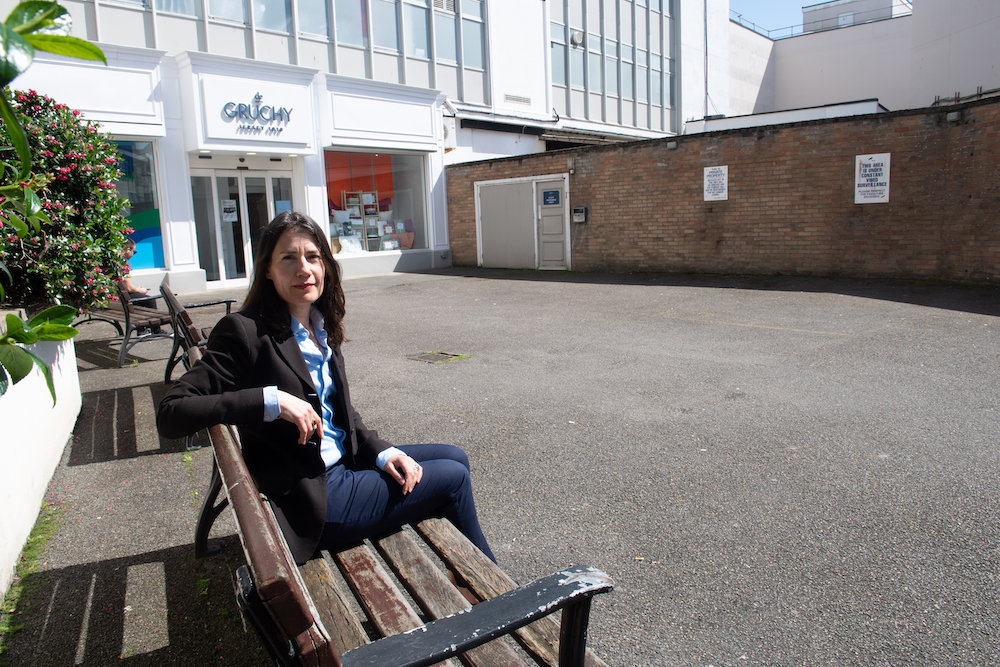
Pictured: One of the spaces that the project aims to improve is the area at the back of De Gruchy's where there are currently just three benches.
We are just gently illustrating what is possible. We're not closing roads or doing anything permanent. We're laying turf, and then we're taking it up again. These are the first stages to illustrate what might be possible, but also asking people what they think.
We all know that we haven't been rubbing along quite as we as we used to for two years, because we've all been living on our own. This was put very eloquently by some of the students I'm working with, who said we're just not really good at it at the moment. So, the need for better and more social infrastructure. By that, I mean places where we can all rub along together as if we were in a capital city – this might be on an underground or a transport system. We don't really have that in St. Helier – we have a bus. Other than that, we're very, very car-heavy.
It's creating places where people can come together with no agenda. They haven't got to buy anything, they haven't got a hug anyone, they haven't got to do anything – that they can just be and they can chat, and they can just be together is very important.
Other themes that certainly were very apparent when we started the research last year, was that, unsurprisingly, it was St. Helier where people felt there were the most problems with the public realm. We've got 32% of our population living here, so it's unsurprising.
There were three key issues: not enough green space, too many cars, and poor housing. These are issues that perhaps we know, but it's really helpful to get the nuances, to get the details, to get the background from those who are actually living and experiencing it. Sometimes it is perception, rather than reality.
Do you know, last year, when I started this research, I interviewed 12 different sectors, 48 stakeholders, and the first question I asked, everybody was, ‘What do you understand by public realm?’ I got some pretty different answers.
I think the easiest way to explain it, from my point of view is ‘public space’ is space for the public, space where we go. What is clear is there are infrastructure responsibilities that are taken care of by I&E and Parish of St. Helier. What Public Voice: Common Ground is most interested in are the spaces in-between. It's how we use these spaces. It was put very beautifully by a lady I was talking to in the Salvation Army, who said, ‘I am the public, and I don't feel I have access.’ It is about public space for public.
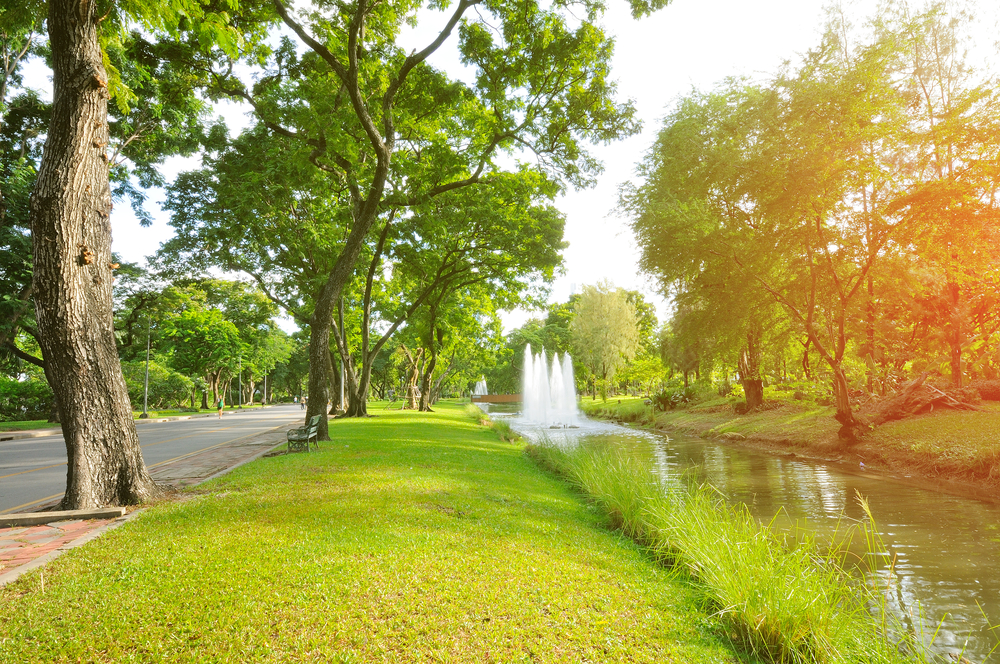
Pictured: One of the issues in St. Helier is the lack of green space.
There is often a perception that public space is something that is done to us – it’s done to us by government, it's done to us by the parish. Whereas consultants who I've worked with who work in Malta, for instance, would say, there's quite a different attitude to public space, although they would say, arguably, the infrastructure is really a bit ropey, there's loads of cars, it's all falling down, so it's really not very sophisticated. However, the attitude that the communities have to the street is very different – if there's a festival going on, if there's a religious celebration, the streets are closed, and it's full of people. It's this different, perhaps grassroots element that I'm wanting to enable. It’s a public voice impacting our public spaces.
I believe some of these really urgent social problems like health and wellbeing, inclusion, identity can be tackled – not solely by better public space, but I think it has an enormously important role. There was a terrifying statistic in 2019. There was a public spaces and movement strategy, and they had an aspiration of 0.2 to five hectares of green space per 1,000 people in St. Helier – what they found, in fact, was 0.05 hectares per 1,000. While we're now in 2023, there is a lot of building going on.
There are those that would argue, ‘but you're not including the beaches.’ We're not including the beaches, but how accessible are they to everybody? We still know – and I know from my work with Springfield School – there are kids who don't get to the beach. It's not just about space, it's about accessible space in the right space.
I think what you're also talking about is also the structure for doing it.
We have something called a ‘Percentage for Art’ policy here, which was set up by Freddie Cohen with a with a very good ambition of a percentage 0.75 of development spend going on public art for the public, which is a is a wonderful thing.
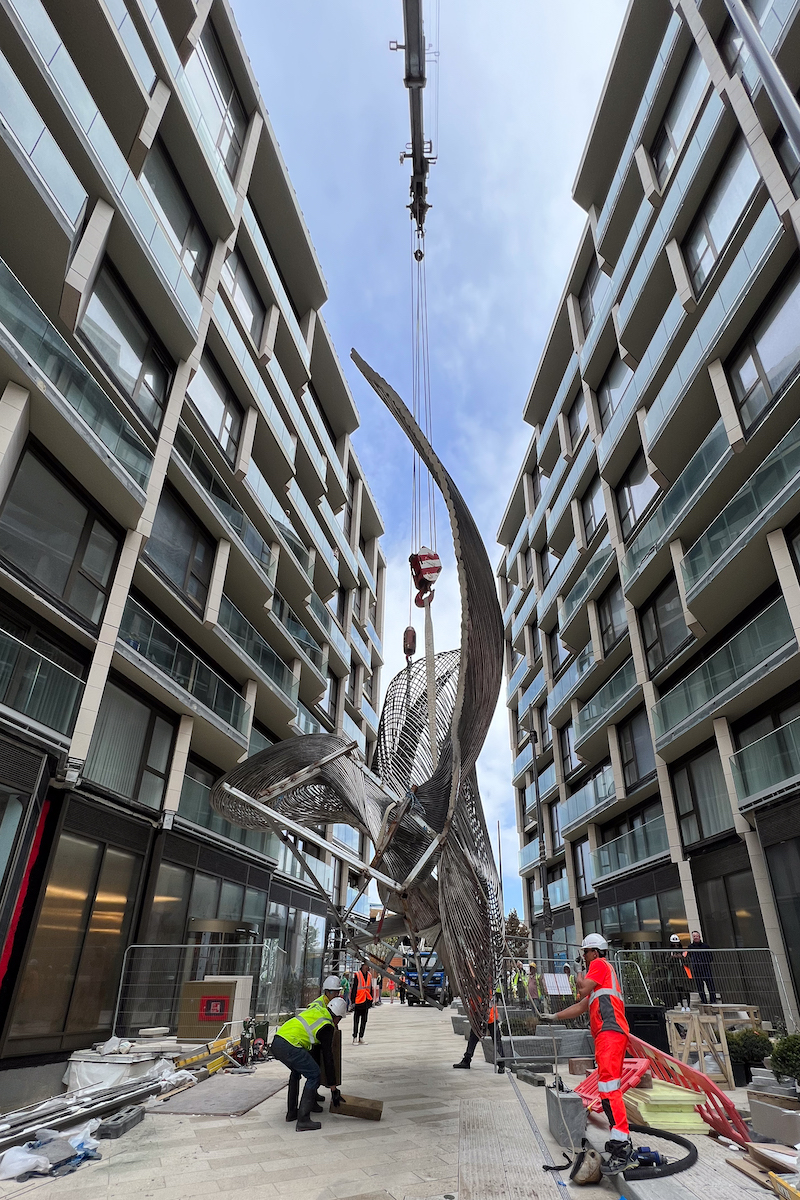
Pictured: One of the most recent examples of the 'Percentage for Art' policy is the £250k sculpture in the Horizon apartment development.
I have been working with [Government] on updating the policy, so that it is more relevant, because arguably, at the moment, I believe that much of the work that is going on is not really for the people. A set of fancy gates is really not going to benefit many people.
And I think it can work harder. I say that because I understand and have seen and believe in the power of public space, public art, to change people's perceptions, to lift their spirits.
I have enormous faith in human beings. I think, give them the opportunity, and they'll solve these problems. Lock them up in a space underground with no outdoors with no green space – you know, like rats, feeble, they will fight and kill each other. It's kind of that simple.
…It's nothing new, and I don't remotely take credit for this, [renowned Danish architect and urban design specialist] Jan Gehl and all these people have been researching into this since the 60s, and Bruce Labey, who I worked very closely with, who did the gardens for the Hospice so successfully, as well as the Talking Trees.
…I've had conversations with clients at mind, who talk about the importance of the public parks in St. Helier for them, because they take off their shoes, and they feel grounded and it and it has this transformative quality.
The problems we have in Jersey are worldwide. What is different is that I was sitting on a panel for Future Places Europe, and listening to some of the discussions about public art, and the work that we're doing with Public Voice: Common Ground is streaks ahead. The reason is – and I applaud the government in this – is recognising their role as partner, rather than lead. There are many people, who have some incredibly good and well-researched ideas, but the structure of implementing them is not thought through.
Without giving the game away, you mean? I am very keen on never saying, ‘I've got a marvellous idea, now you go and do it.’ I'm just the funnel for the people… so I will be continuing to gather and analyse this, and we'll be working with Thrive later in the year to kind of code and theme. We will then have a Commissioning Board where there will be representatives from the various sectors within Jersey, but also, depending what the data looks like, they might be town planners, they might be architects, they might be landscape architects, they might be our consultants.
And then equally, saying, ‘Right, so this is what the findings are – who's going to fund it?’
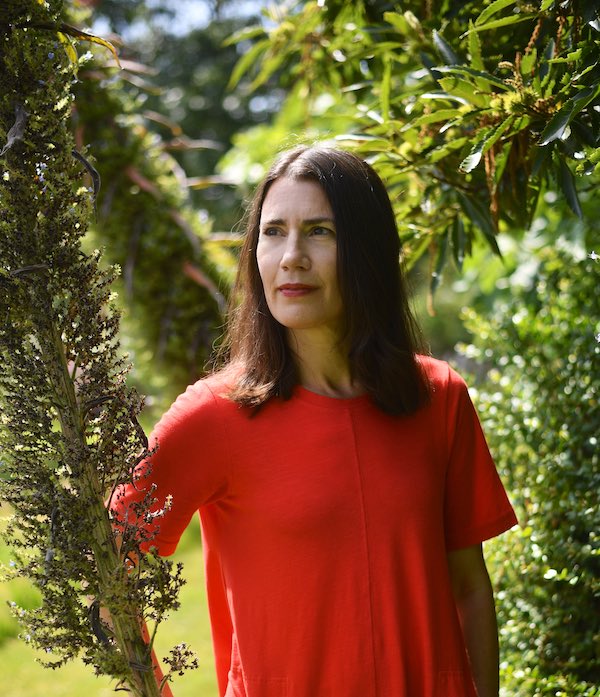
Pictured: "I have enormous faith in human beings. I think, give them the opportunity, and they'll solve these problems."
…There's a very simple question on the on the survey that asks what specifically people would like to see more of, and from very, very early on, whether it was people responding to the survey, or in interviews with me directly, was this thing of ‘more green space, less cars’. There were also concerns about housing.
The other thing that came up, which, for me, was very interesting, was this thing of creating spaces with no agenda. I read Jan Gehl every morning, and, you know, I was reading about the importance of walking – and I am prone to this, I cycle everywhere in St. Helier, or we walk, but I walk fast. What we're trying to create is ‘places to dawdle’. Places that slow people down, where they want to chat, want to come together, want to look in windows, want to show up, maybe they want to sit down. It's these kinds of places we're wanting in St. Helier.
…I was listening to a lady from Helsinki, who was talking about her favourite place… and it was the South Bank in London. The reason for this was it's along a river, which is always lovely. What she said is, no matter what time of day, there is always something going on. This might be a recital in the foyer of the theatre, it might be an art exhibition, it might be the old guys selling second-hand books. What she thought was very important was it hung onto the old traditions, like the old guys selling a second-hand books.
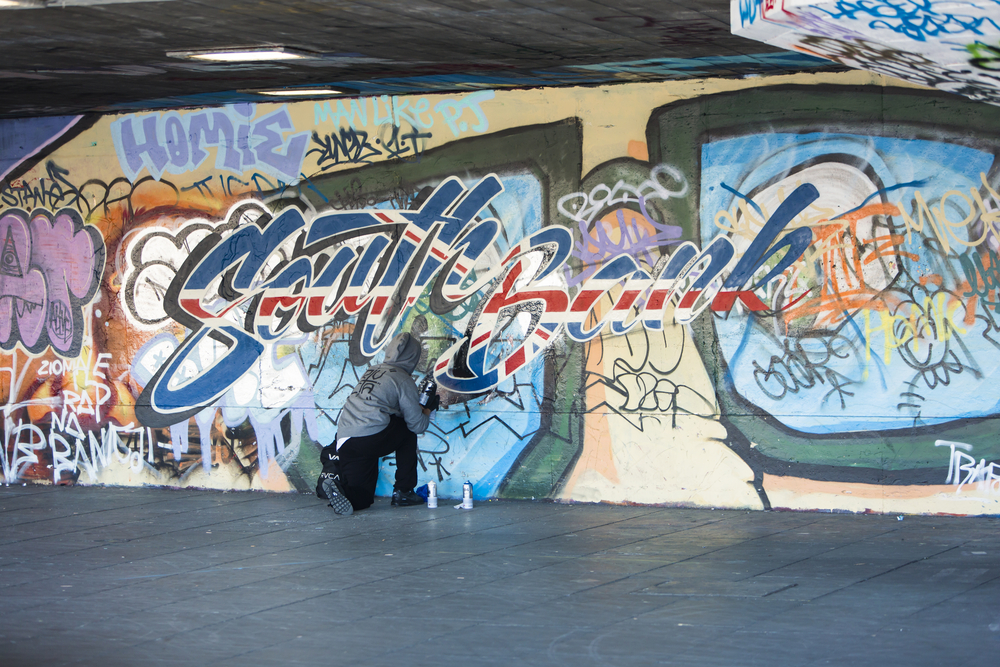
Pictured: The skatepark on London's South Bank.
It also didn't shy away from a little bit of community tension. The skatepark there was going to go, and then it was going to stay, and then it was going to go, but it's been there for many years. And they have successfully resolved these tensions between, if you like, government, parish, and community, which is what we are looking to do. I thought that was a very good point. It's not perfect. It's constantly changing. Yes, you've got the Embankment and you've got people sleeping rough, but it always feels alive. You've got the Globe just down just down the way. It feels alive. And it feels about people. I think if we can inspire our people, the world will be a better place.
This article first appeared in the July edition of Connect magazine, which you can read in full below...
This is an abridged version of an interview with Sasha Gibb which you can listen to in full below or by searching ‘Bailiwick Podcasts’ in your favourite pod provider...
Comments
Comments on this story express the views of the commentator only, not Bailiwick Publishing. We are unable to guarantee the accuracy of any of those comments.